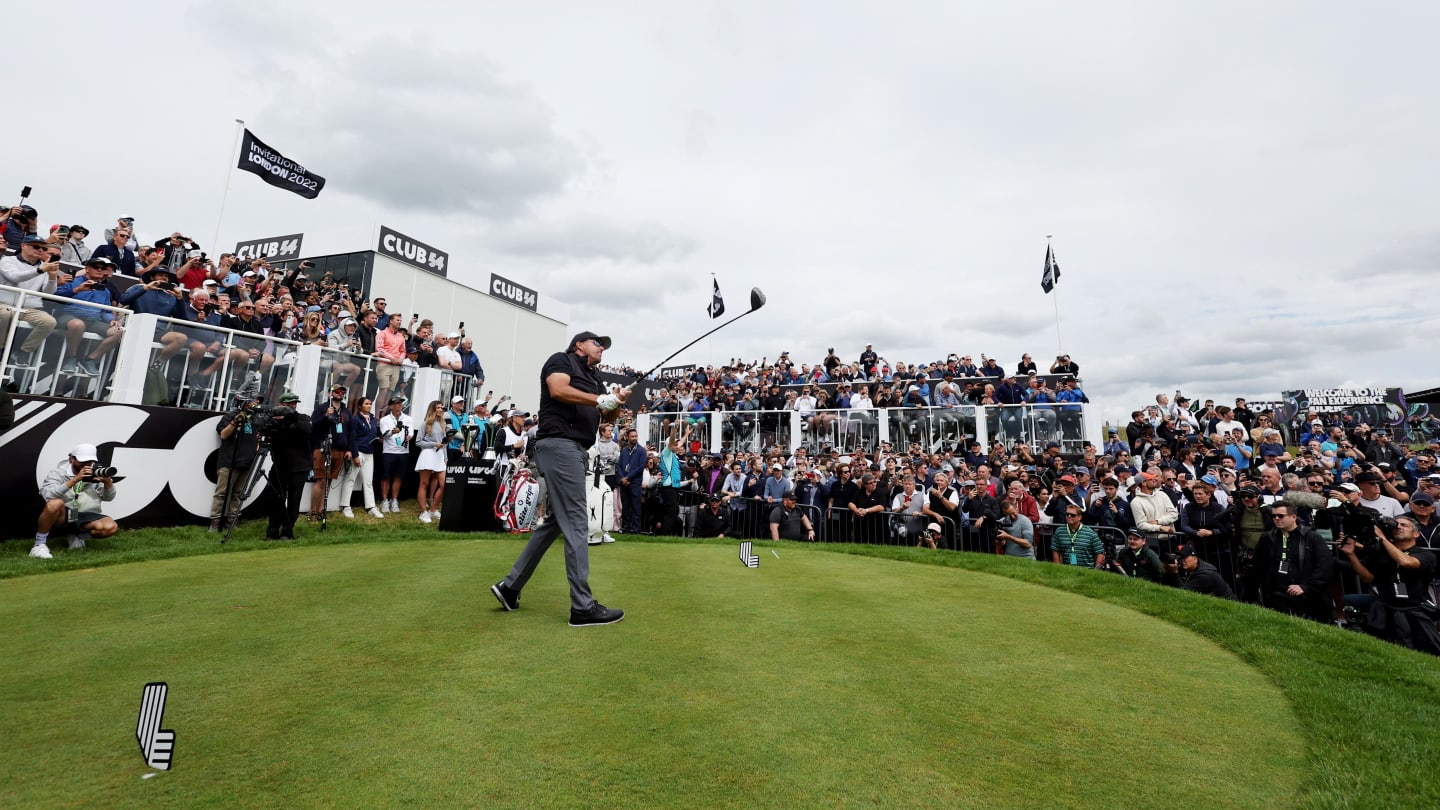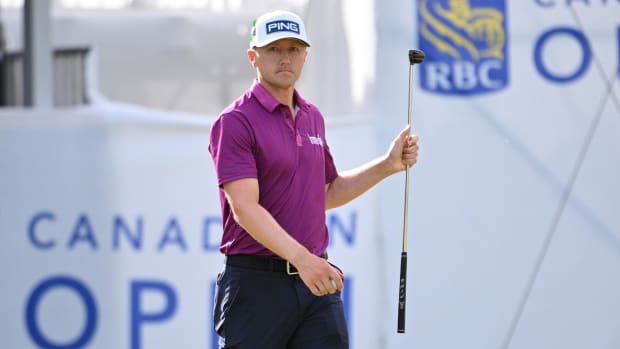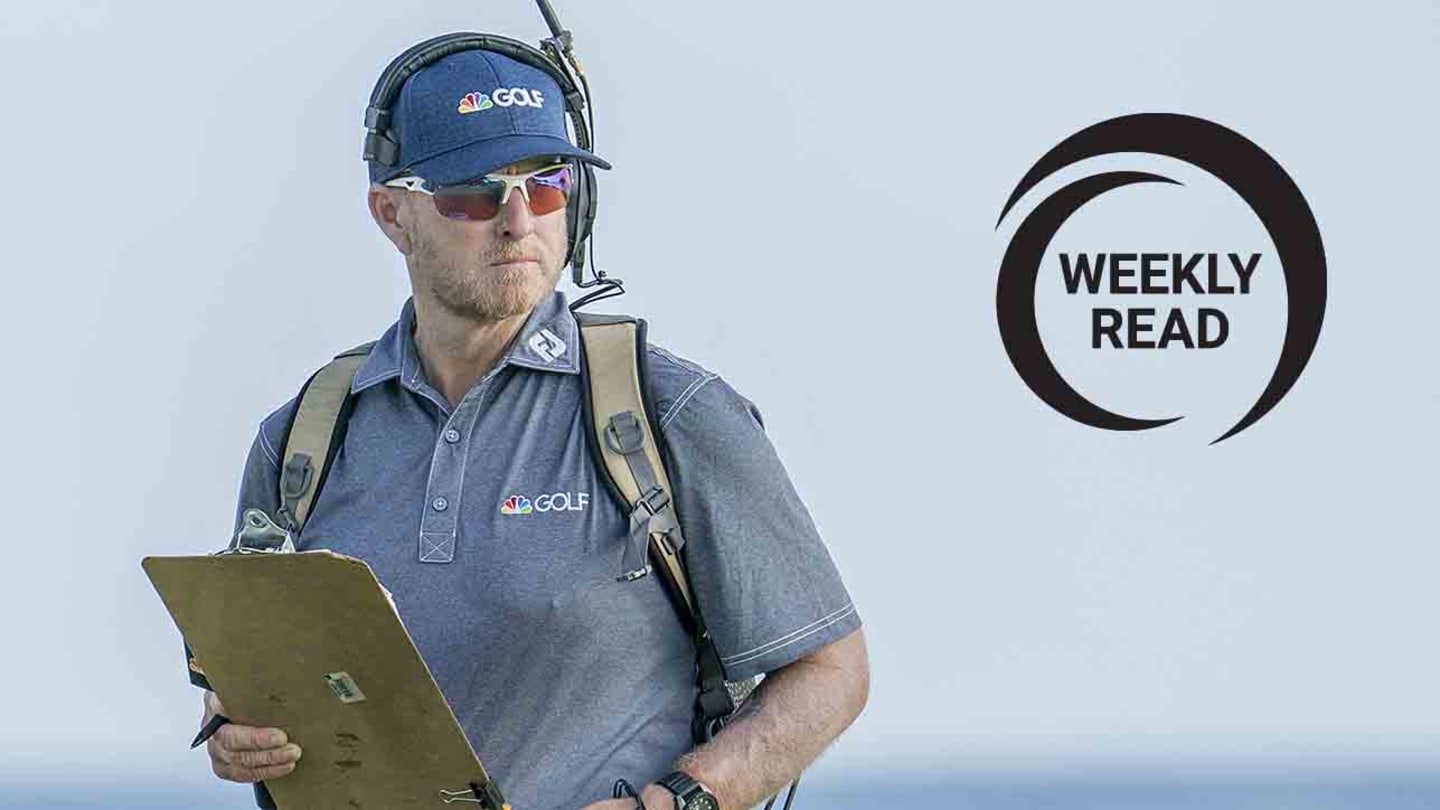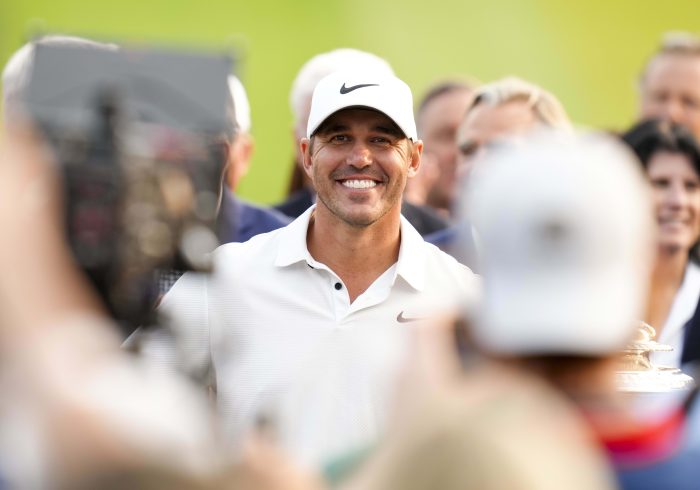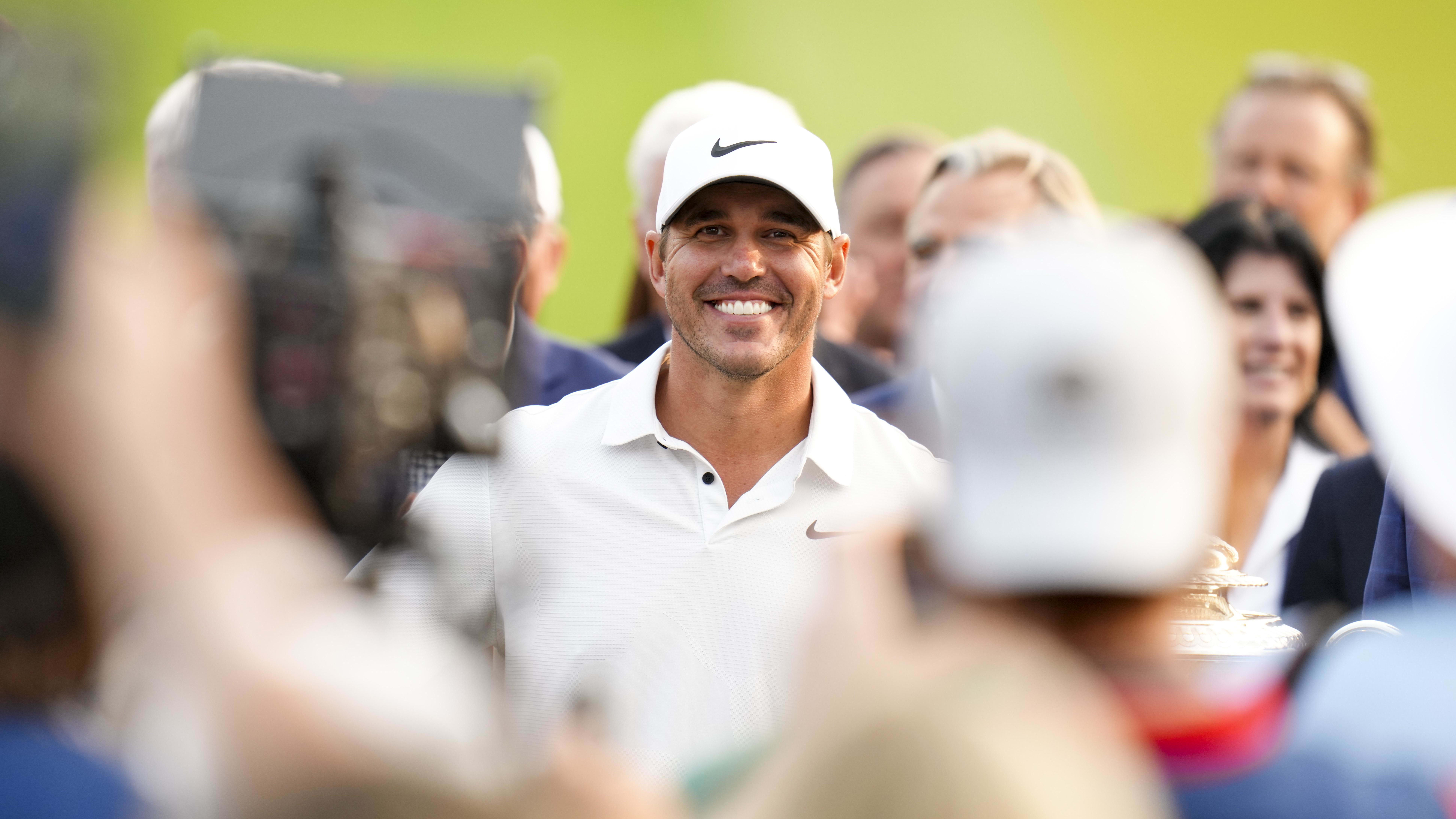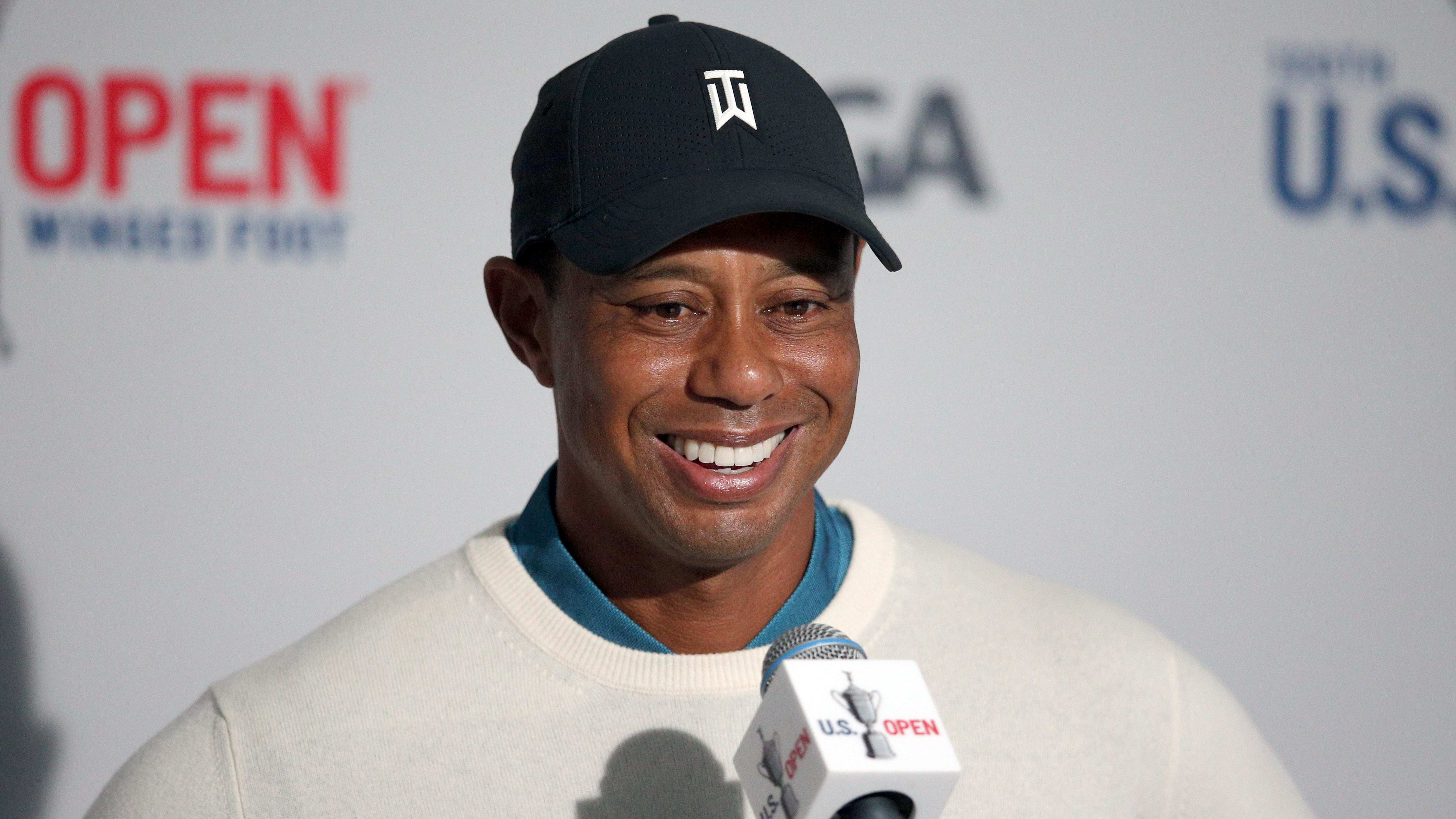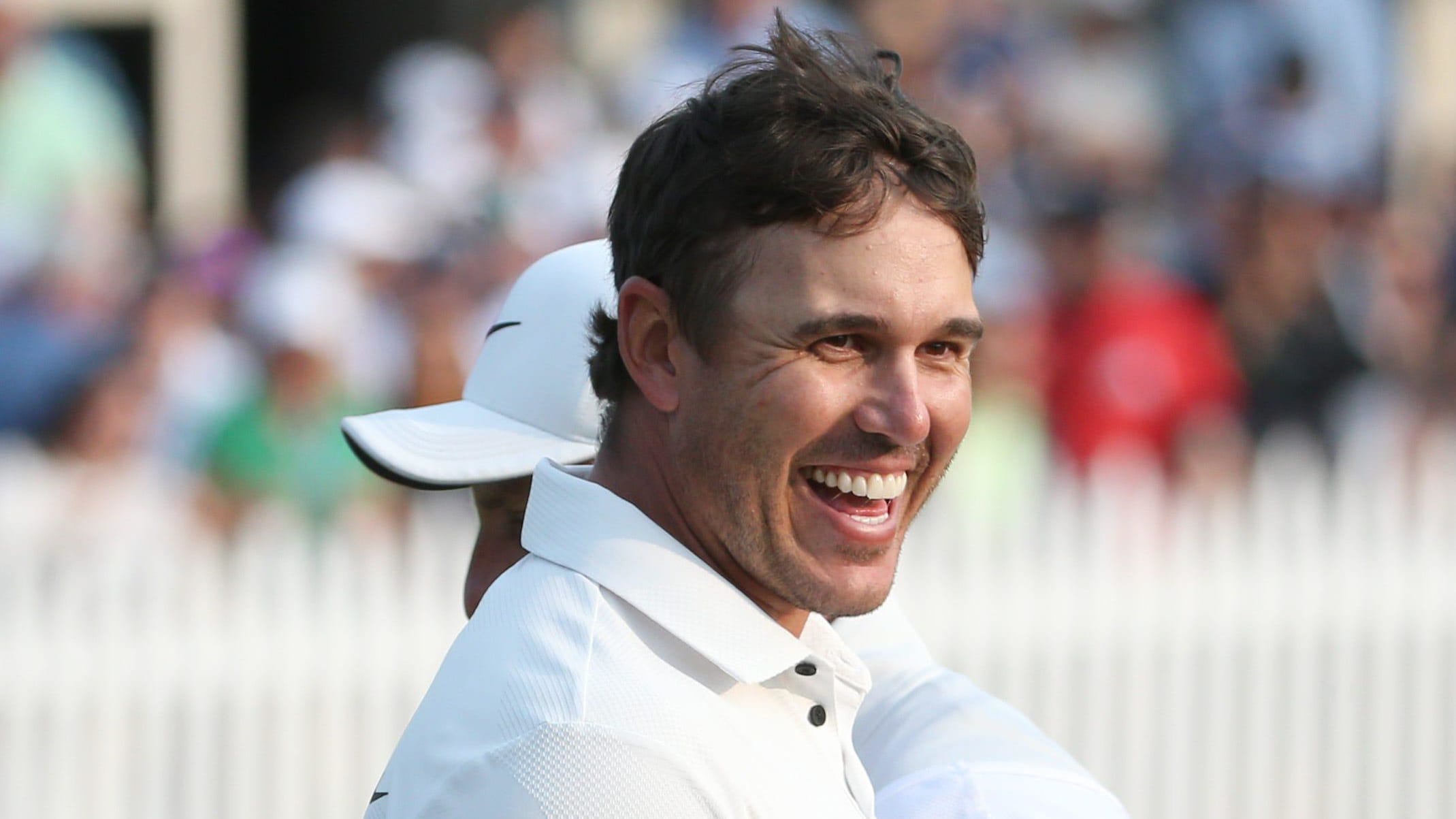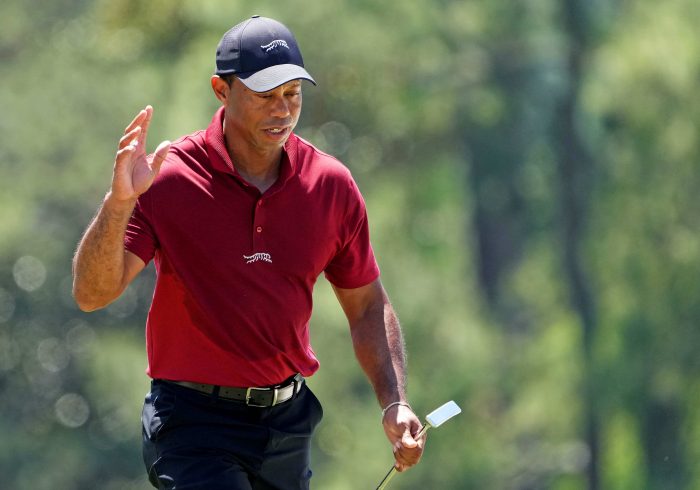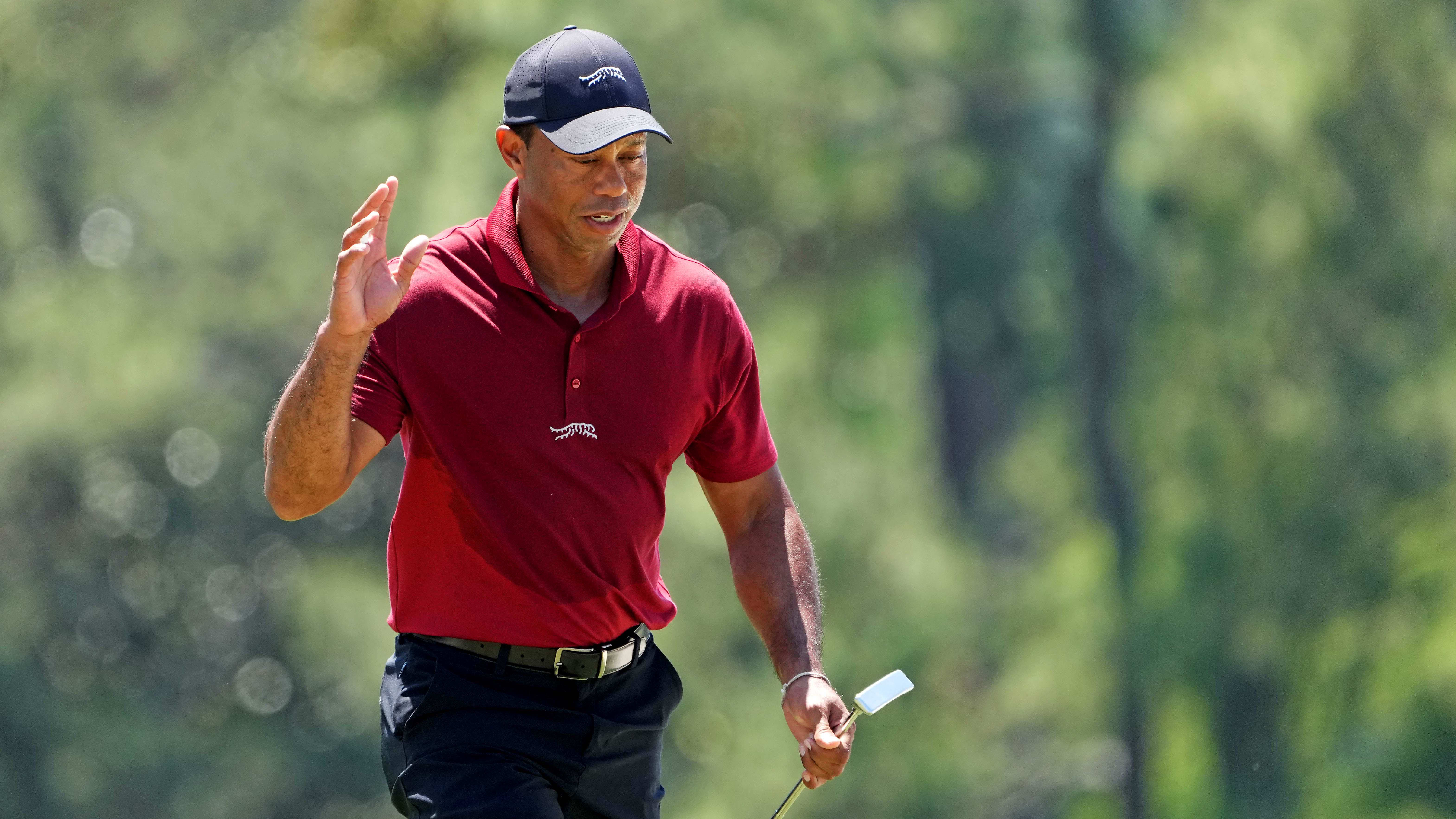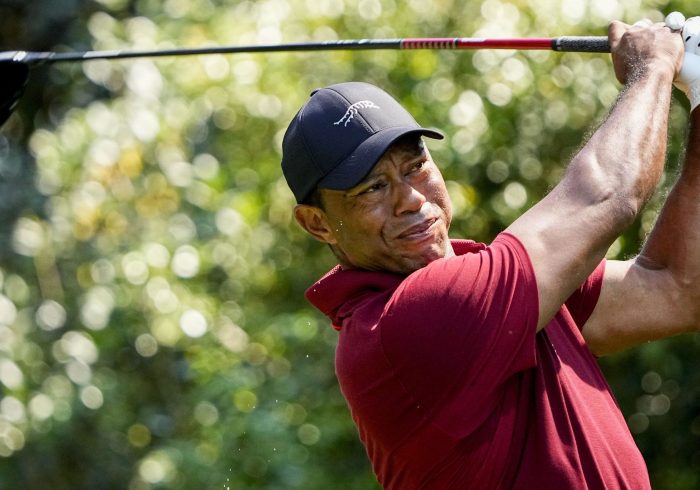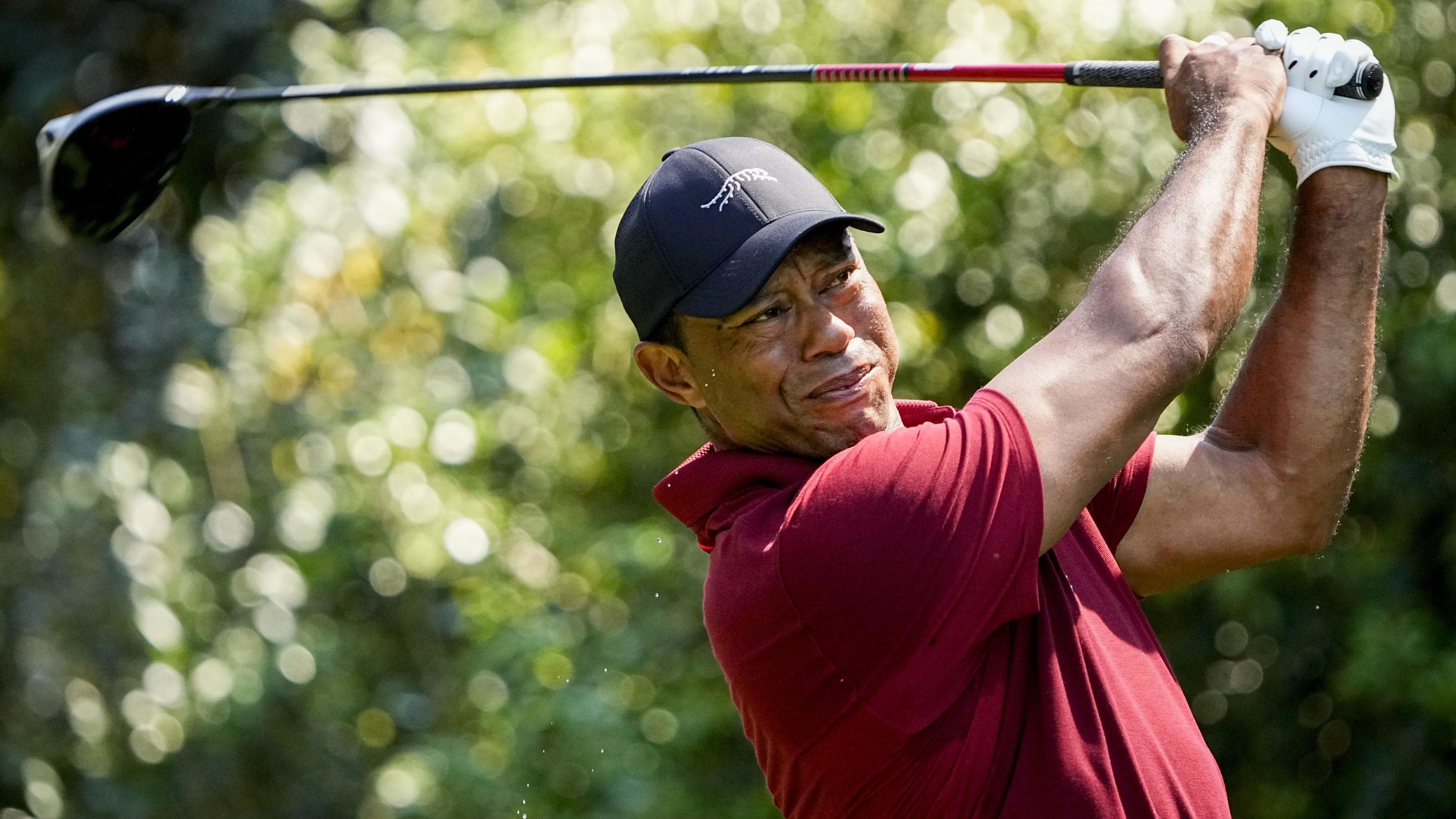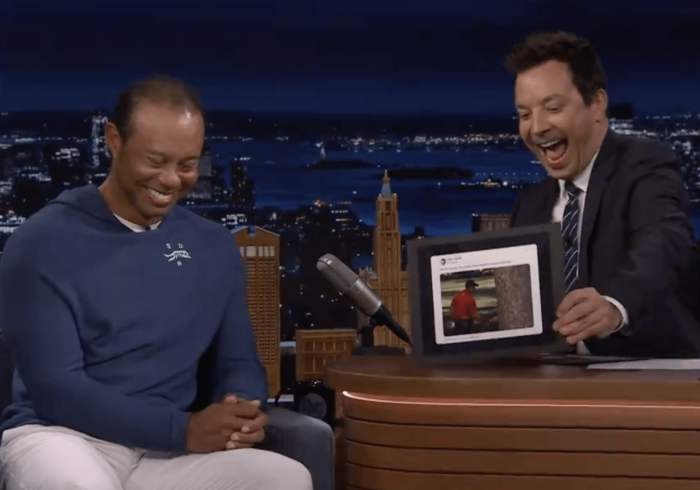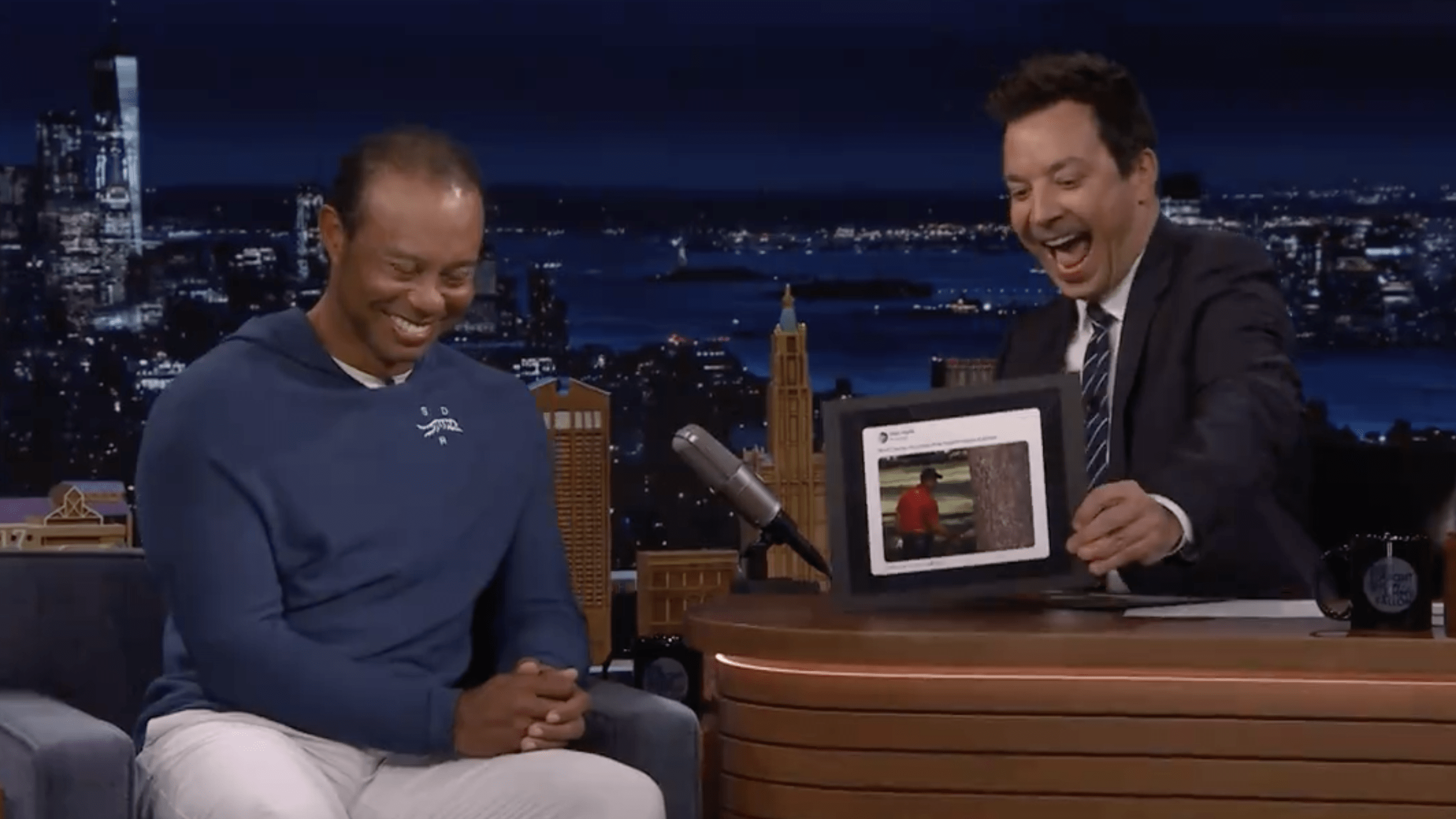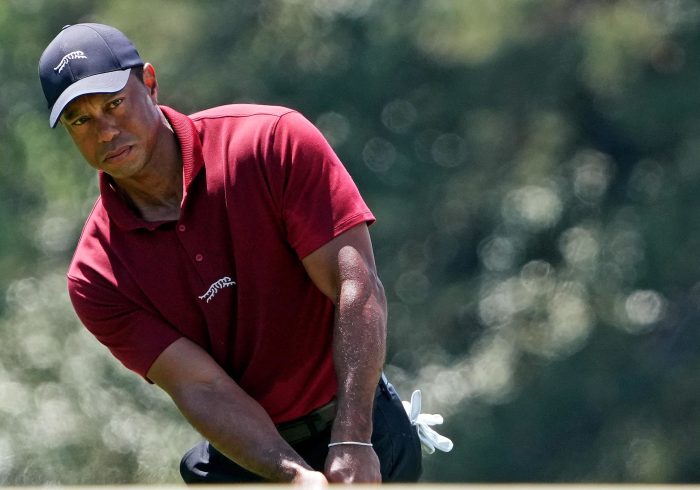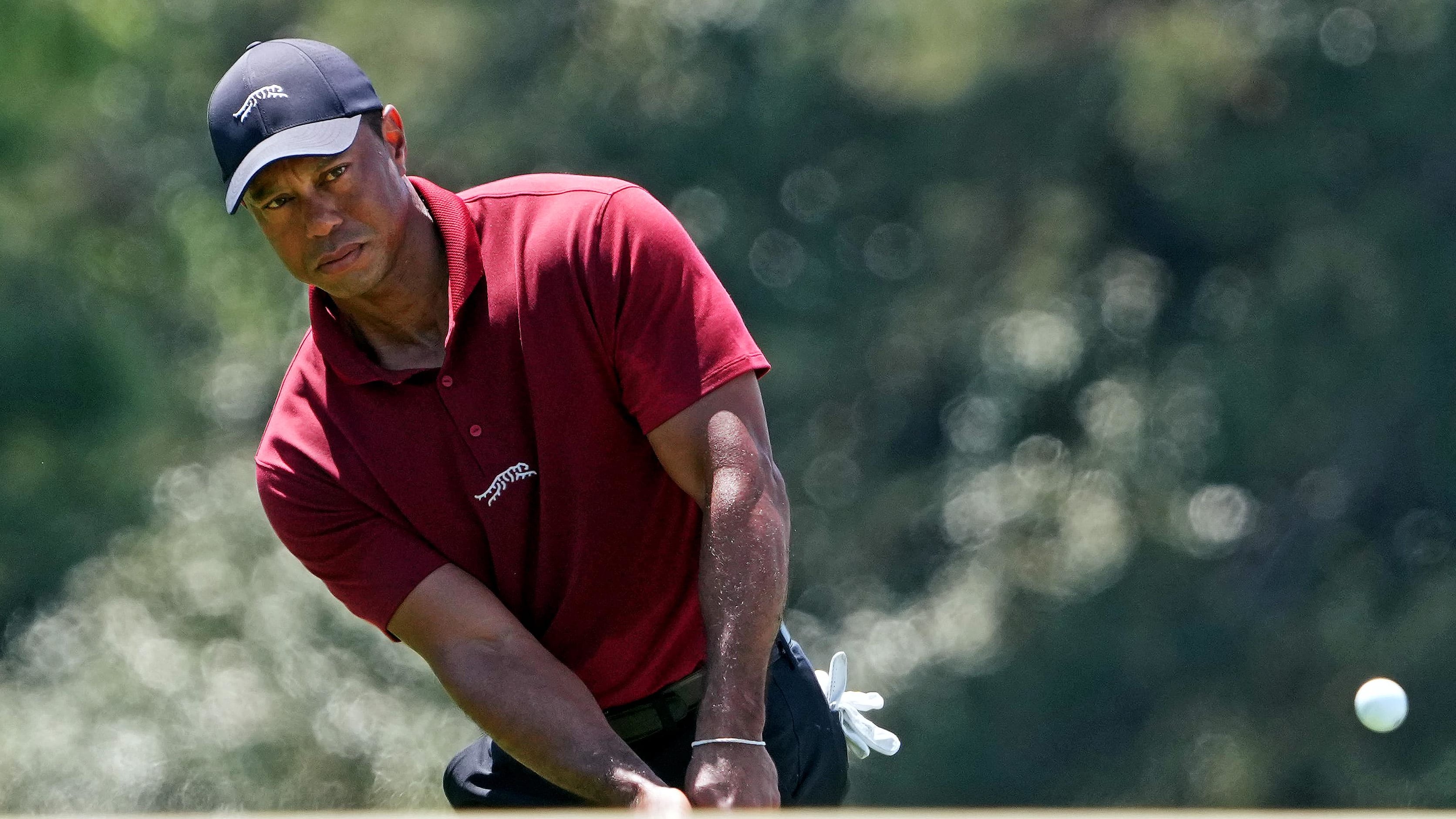How We Got Here: A Timeline of LIV Golf’s Creation and How the PGA Tour Reacted
How did professional golf's split come to life? Here's a timeline compiled by Bob Harig, from the initial reports of a rival league in January 2020 until now, one year after a "framework agreement" was supposed to unify the sport.
January: Reports first surface about the potential for a rival golf league that has been meeting with players and agents behind the scenes and touting an 18-event circuit with just 48 players, 12 teams and guaranteed pay. Initial ideas saw $10 million purses with no cuts and a windfall for 12 team captains. The concept was called the Premier Golf League.
Jan. 29: Phil Mickelson plays in the pro-am for the Saudi International, an event that is sanctioned by the European Tour. In his group is Majed Al-Sorour, CEO of the Saudi Golf Federation; Andy Gardiner, a director at Barclays Capital and a founder of the PGL; and Colin Neville of the Raine Group, also a backer of the PGL, which had Saudi Arabia backing as well through the Public Investment Fund.
Jan. 30: Greg Norman, who once tried to spearhead a rival league with the backing of Fox Sports, sees viability in the PGL a day after the pro-am in Saudi Arabia. “It’s just a matter of getting all the right components together, whether players stay together," says Norman, whose World Golf League in 1993-94 was thwarted by the PGA Tour. “With my original concept, some players loved it, and others didn’t like it. I had corporate, I had television but you need 100% of the pie to be together before we can bake it. From what I’m seeing here, this one has every chance of getting off the ground."
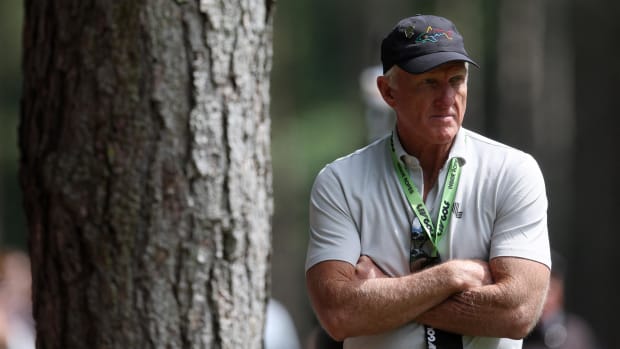
Feb. 11: Speaking at the Genesis Invitational, Tiger Woods says he’s been approached about the PGL. “My team’s been aware of it and we’ve delved into the details of it and trying to figure it out just like everyone else. We’ve been down this road before with World Golf Championships and other events being started. There’s a lot of information that we’re still looking at and whether it’s reality or not, but just like everybody else, we’re looking into it."
Asked why he might even be interested, Woods said: “I think just like all events, you’re trying to get the top players to play more collectively. It’s one of the reasons why we instituted the World Golf Championships, because we were only getting (the top players) together five times a year, the four majors and the Players, and we wanted to showcase the top players on more than just those occasions. So this is a natural evolution, whether or not things like this are going to happen, but ideas like this are going to happen going forward, whether it’s now or any other time in the future."
Feb. 18: A week later at the WGC-Mexico Championship, Rory McIlroy seemingly deals the PGL a serious blow: “The more I’ve thought about it, the more I don’t like it. The one thing as a professional golfer in my position that I value is the fact that I have autonomy and freedom over everything I do. I pick and choose—this is a perfect example. Some guys this week made the choice not to come to Mexico. If you go and play this other golf league, you’re not going to have that choice.
"I read a thing the other day where it said if you take the money they can tell you want to do. And I think that’s my thing, I’ve never been one for being told what to do, and I like to have that autonomy and freedom over my career, and I feel like I would give that up by going to play this other league. For me, I’m out. My position is I’m against it until there may come a day that I can’t be against it. If everyone else goes, I might not have a choice, but at this point, I don’t like what they’re proposing."
Spring/Summer: Talk of the rival golf circuit dies down considerably amid the global Coronavirus pandemic. Talk shifts to when golf will resume and how it will take place amid a health crisis. The PGL idea goes into the background.
Fall: The PGL approaches the European Tour, now the DP World Tour, with a proposal to merge or cooperate. CEO Keith Pelley turns down the PGL and instead forms a "strategic alliance" with the PGA Tour that will see some crossover events, the Tour take an ownership stake in European Tour productions, and effectively—at the time—hold off the outside threat.
May 4: A report surfaces that a new Super Golf League has emerged and that it is either the new name for the PGL or something different. Phil Mickelson and Dustin Johnson are among those linked to it. Sometime during the spring and summer of 2021, the PGL sees some of its personnel switch allegiances to a new entity that will have full Saudi backing and will come to be known as LIV Golf.
Oct. 27: At a private unveiling in New York, LIV Golf Investments is announced with Greg Norman as its CEO, with the idea of first helping to back golf in Asia with the $300 million investment in the Asian Tour, which will be used to finance a new elevated series of events called the International Series. It is eventually disclosed that Norman will also be the commissioner of a new tour called the LIV Golf League, with plans to launch in the spring of 2022.
Nov. 21: PGA Tour commissioner Jay Monahan sends a memo to players outlining how 55% of the Tour’s revenue will be paid out to players in the form of prize money, bonuses and other benefits—believed to be in response to Phil Mickelson saying on a podcast that only 26% of revenue was going to the players.
Feb. 2: While playing in the Saudi International for the third straight year, Phil Mickelson does an interview with Golf Digest in which he refers to the PGA Tour’s "obnoxious greed" as a reason why players might be interested in LIV Golf. He also maintains that the Tour is sitting on millions of dollars that should be going to the players. "It’s not public knowledge, all that goes on," Mickelson said. “But the players don’t have access to their own media. If the Tour wanted to end any threat, they could just hand back the media rights to the players. But they would rather throw $25 million here and $40 million there than give back the roughly $20 billion in digital assets they control. Or give up access to the $50-plus million they make every year on their own media channel."
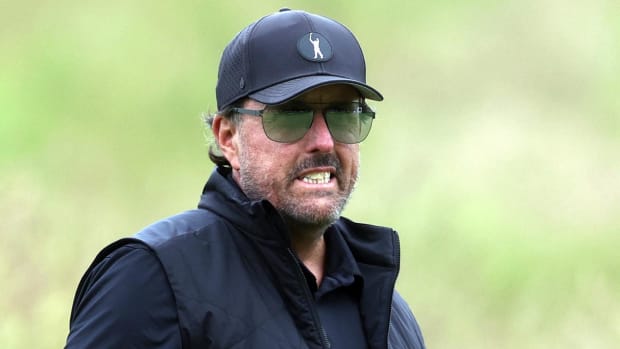
Feb. 17: Even Tiger Woods and the Genesis Invitational—where he is not playing—take a back seat to the drama that unfolds when Alan Shipnuck releases an excerpt from his soon-to-released biography of Phil Mickelson in which the golfer, among other things, says he is willing to use the Saudi-backed LIV Golf League as leverage against the PGA Tour and that he and other players paid attorneys to help LIV Golf develop its business plan.
Feb. 20: With Phil Mickelson’s comments the talk of the tournament, players such as Dustin Johnson and Bryson DeChambeau come out in support of the PGA Tour, viewed as a blow to LIV Golf. It is later learned that Mickelson’s comments and the subsequent back-tracking of several players who were interested in LIV set back the league’s plans and sent it into disarray.
Feb. 22: In the wake of his comments, Phil Mickelson offers an apology and says he will step away from the game for a period of time and offers to pause relationships with sponsors. “I have always known that criticism would come with exploring anything new. I still chose to put myself at the forefront of this to inspire change, taking the hits publicly to do the work behind the scenes.”
Mickelson said that he offered the brands with which he was associated “the option to pause or end the relationship as I understand it might be necessary given the current circumstances.” KPMG and Amstel Light end their relationships with Mickelson, and a few days later, Callaway announces that it is pausing a relationship that dates to 2004.
March 8: With Phil Mickelson missing—and, later it was learned, suspended—PGA Tour commissioner Jay Monahan addressed the media at the Players Championship. A typical state-of-the tour-type news conference turned into questions about Mickelson and LIV Golf. "The PGA Tour is moving on," he said. "We have too much momentum and too much to accomplish to be consistently distracted by rumors of other golf leagues and their attempts to disrupt our players, our partners, and most importantly our fans from enjoying the Tour and the game we all love so much.
"I am grateful for the strong support our top players have shown recently and publicly, and I’m extremely proud that we’ve turned the conversation around to focus on what we do best: delivering world-class golf tournaments with the best players to the best fans, all while positively impacting the communities in which we play. We are and we always will be focused on legacy not leverage."
March 16: Despite numerous setbacks, LIV Golf announces an eight-tournament schedule to begin in June. It won’t be the LIV Golf League, as planned, but the LIV Golf Invitational Series. Purses will be $20 million for the individual portion with $5 million more set aside for the teams. At the time, LIV Golf was unsure if it would be able to fill a 48-player field so it announced that the entire purse would be paid out regardless of the number of players who started. Total prize money for the eight events was set at $255 million, with $50 million set aside for a season-ending Team Championship.
May 10: PGA Tour players and Korn Ferry Tour players interested in competing in the first LIV Golf event outside of London in June need to seek conflicting event and/or media releases but are denied. The Tour tells players it is not an authorized event. Greg Norman, the LIV Golf commissioner, pushes back. "Sadly, the PGA Tour seems intent on denying professional golfers their right to play golf, unless it’s exclusively in a PGA Tour tournament. This is particularly disappointing in light of the Tour’s non-profit status, where its mission is purportedly to promote the common interests of professional tournament golfers.
"Instead, the Tour is intent on perpetuating its illegal monopoly of what should be a free and open market. The Tour’s action is anti-golfer, anti-fan, and anti-competitive. But no matter what obstacles the PGA Tour puts in our way, we will not be stopped. We will continue to give players options that promote the great game of golf globally.”
May 31: Dustin Johnson, a two-time major winner who has 24 PGA Tour titles, headlines the field announced for the first LIV Golf event to be played at The Centurion Club outside of London. Others listed are past major winners Sergio Garcia and Louis Oosthuizen, as well as Kevin Na, Ian Poulter and Lee Westwood.
June 6: Phil Mickelson ends a four-month hiatus in which he missed the Masters and defense of his PGA Championship title, emerging as LIV Golf’s latest signee who is set to compete later in the week at the first tournament. At a news conference prior to the tournament, Mickelson is asked several times about his past comments regarding Saudi Arabia, its human rights record and the death of journalist Jamal Khashoggi, believed by U.S. government officials to have been carried out by the Saudi regime.
“Well, certainly, I've made, said and done a lot of things that I regret, and I'm sorry for that and for the hurt that it's caused a lot of people. I don't—I don't condone human rights violations at all. Nobody here does, throughout the world. I'm certainly aware of what has happened with Jamal Khashoggi, and I think it's terrible. I've also seen the good that the game of golf has done throughout history, and I believe that LIV Golf is going to do a lot of good for the game as well. And I'm excited about this opportunity. That's why I'm here."
June 9: Within minutes of the first tee shots being struck at the first LIV Golf event, PGA Tour commissioner Jay Monahan issues a memo in which players who are participating are told they are being suspended.
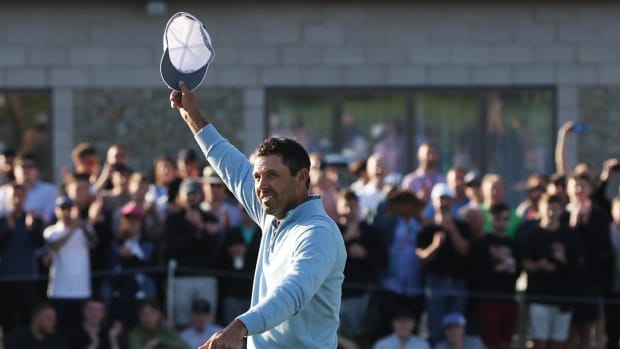
June 11: Charl Schwartzel, the 2011 Masters champion, wins the first LIV event, holding on for his first victory anywhere in nearly six years. The win was worth $4 million from the $20 million purse and because Schwartzel’s team, Stinger GC, won the team competition, he pocketed another $750,000 from the $3 million paid to the winners.
June 21: Following other players who committed to play for LIV during or after the first LIV event, then-four-time major champion Brooks Koepka is announced as the latest addition. He joins the likes of Bryson DeChambeau, Pat Perez, Patrick Reed and Abraham Ancer as those who were now set to play in LIV’s second event.
June 22: During a news conference at the Travelers Championship, PGA Tour commissioner Jay Monahan outlines a plan that will see the PGA Tour return to a calendar-year schedule in 2024 while also increasing the purses substantially at eight events, including the legacy events for Tiger Woods, Arnold Palmer and Jack Nicklaus. The FedEx Cup season is also changed to see smaller fields at the first two playoff events.
Aug. 2: Eleven LIV golfers sue the PGA Tour to challenge suspensions and claim a restraint of trade. Phil Mickelson and Bryson DeChambeau are among those named in the suit. Three other players—Talor Gooch, Hudson Swafford and Matt Jones—seek a temporary restraining order so they can play in the FedEx Cup playoffs. (The restraining order is denied on the eve of the FedEx Cup playoffs.)
Aug. 16: Tiger Woods flies to Delaware and heads a players-only meeting at the BMW Championship along with Rory McIlroy where details are hashed out that will lead to substantial purse increases and benefits for players. It would later commonly be referred to as "the Delaware Meeting."
Aug. 24: On the back of the Delaware meeting, PGA Tour commissioner Jay Monahan announces a hastily-devised plan that will see eight tournaments in 2023 with boosted purses. First called designated events, these tournaments would have $20 million purses except for the Sentry, which will be $15 million. For several of the events, the result means more than doubling the purse. For the legacy events, it means adding $8 million per event. And the first two playoff events will also have $20 million purses.
Aug. 30: Just more than a month after his victory at St. Andrews, British Open champion Cam Smith becomes the latest player to join LIV Golf, doing so in time for its event in Boston. Smith is joined by Joaquin Niemann, who attended the Delaware meeting, along with Marc Leishman, Harold Varner III, Anirban Lahiri and Cameron Tringale. At the time, it gave LIV Golf six of the top 30 players in the Official World Golf Ranking.
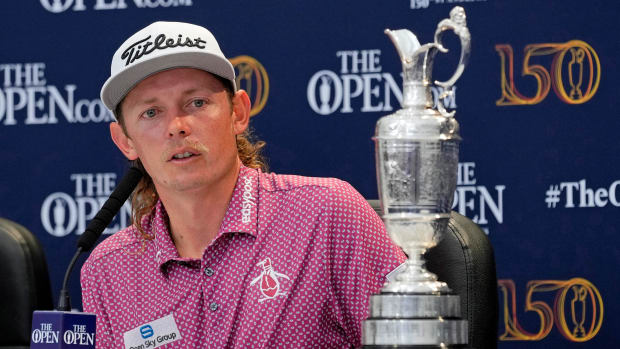
Oct 5: LIV Golf announces a strategic alliance with the MENA Tour, a developmental tour that has had Official World Golf Ranking accreditation since 2016. LIV Golf incorporates its events into the MENA Tour schedule and says it believes it should be granted OWGR immediately due to the association. The move is scoffed at as an end-around to try and obtain points and the OWGR does not grant points to LIV Golf.
Oct. 29: Martin Slumbers, the CEO of the R&A, makes it clear that the British Open is not going to ban LIV golfers who are otherwise eligible for the 2023 championship. "We are not going to abandon 150 years of history have the Open not be open," Slumbers said.
Oct. 30: LIV Golf completes its first season with Dustin Johnson’s 4Aces team winning the team championship in Miami. The four team members share a $16 million payday.
Nov. 15: At the DP World Tour Championship in Dubai, Rory McIlroy says it is time for golf’s warring factions to figure something out. But he says it needs to happen without LIV Golf commissioner Greg Norman. “Greg needs to go. He needs to exit stage left. He’s made his mark but I think now is the right time to say you’ve got this thing off the ground but no one’s going to talk unless there’s an adult in the room that actually try to mend fences."
Nov. 29: At his Hero World Challenge event in the Bahamas, Tiger Woods also says that Greg Norman needs to go. Woods had been planning to play for the first time since the British Open but withdrew due to plantar fasciitis. “I think (Greg Norman) has to go, first of all, and then obviously the litigation against us and then our countersuit against them. Those would then have to be at a stay as well, then we can talk, we can all talk freely. Right now as it is, not right now, not with their leadership, not with Greg there and his animosity towards the tour itself. I don’t see that happening. But why would you change anything if you’ve got a lawsuit against you? They sued us first."
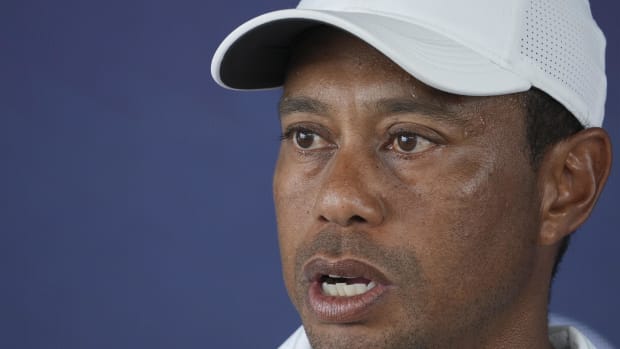
Dec. 16: Only a year into the job, the Chief Operating Officer for LIV Golf leaves his position. Atul Khosla was hired by LIV Golf in December 2021 from the Tampa Bay Buccaneers NFL team, where he held the title of chief corporate development and brand officer. Khosla was also chief operating officer for the Chicago Fire soccer club in the MLS and also worked for General Electric and NBC Sports. In his role at LIV Golf, he reported to CEO and commissioner Greg Norman. His role was taken over by executives of the Performance 54 agency and not filled for nearly a year.
Dec. 20: Augusta National makes clear it will be inviting those eligible for the Masters to participate. “Regrettably, recent actions have divided men’s professional golf by diminishing the virtues of the game and the meaningful legacies of those who built it," Masters chairman Fred Ridley said in a statement. “Although we are disappointed in these developments, our focus is to honor the tradition of bringing together a preeminent field of golfers this coming April.”
Jan. 19: LIV Golf announces it has a long-awaited television partner after its events were available only via streaming in the first year. The CW Network—the C is for CBS, the W for Warner Media—enters into a multi-year agreement to televise LIV Golf tournaments. The deal will not see LIV Golf get paid a traditional rights fee but that is "mutually financially beneficial." It is believed that LIV will share advertising revenue with the CW and will also likely be expected to shoulder a good bit of promotional work.
Jan. 24: Jay Monahan and Keith Pelley recuse themselves from reviewing LIV Golf’s application for Official World Golf Ranking points. Monahan, the commissioner of the PGA Tour, and Pelley, the CEO of the DP World Tour, are two of the seven members of the OWGR board of directors that ultimately decides the fate of tours seeking accreditation. Keith Waters, who heads up the International Federation of PGA Tours and is the DP World Tour’s chief operating officer, also recused himself from the application.
“I have not looked at the LIV application," Pelley says during a session with reporters in Dubai. “So I can’t give an opinion on an application I have not seen. It is in the hands of the technical committee. On the advice of legal counsel, myself and Jay recused ourselves from the separate committee. Representatives of the four majors will now determine the LIV application. We are not involved and we have no influence on what transpires as far as LIV goes."
April 5: The DP World Tour wins an arbitration case against LIV Golf players who were seeking to play the former European Tour. The arbitration panel rules that the DP World Tour had the right to fine and suspend players for violating its membership regulations in order to compete in LIV Golf events. Lee Westwood, Ian Poulter and 10 other players had brought the action in response to fines levied for not being granted permission to compete in LIV Golf events. A separate antitrust case between LIV Golf and the PGA Tour is still scheduled for 2024.
May 4: Amid its investigation of former President Donald Trump’s handling of classified documents, the Department of Justice looks specifically at his dealings with LIV Golf, according to the New York Times. Two of Trump’s courses hosted events in 2022 with three scheduled to do so in 2023.
June 6: The golf world is stunned to learn that secret negotiations have been taking place and resulted in a "framework agreement" between the PGA Tour, DP World Tour and Public Investment Fund. Initially said to be a "merger," it is later reframed as an agreement that would see the entities have an alliance. The biggest part of the news is that all of the lawsuits have been dropped. The idea is to have a final deal by Dec. 31, 2023.
As more details emerge, it is learned that PGA Tour Policy Board members Jimmy Dunne and Ed Herlihy secretly met with Yasir Al-Rumayyan, the governor of the PIF, for several weeks prior to the announcement. PGA Tour commissioner Jay Monahan also had clandestine meetings with Al-Rumayyan. On the day of the announcement, they appeared together on CNBC.
June 7: While surprised that everything came together so quickly, Rory McIlroy says that the PGA Tour’s partnership with the Public Investment Fund of Saudi Arabia will ultimately be good for the game of golf. Speaking after his pro-am round at the RBC Canadian Open, McIlroy learned of the agreement shortly before the rest of the world but said much of it has been mischaracterized and that it should not be viewed as a merger with LIV Golf.
“LIV has nothing to do with this. It’s the PGA Tour, the DP World Tour and the Public Investment Fund that are basically partnering to create a new company. That’s where I was a little frustrated. All I’ve wanted to do was protect the future of the PGA Tour and protect the aspirational nature of what the PGA Tour stands for. I think this does this. If you look at the structure, this new company sits above everything else. (PGA Tour commissioner) Jay (Monahan) on top of that. Technically, anyone involved with LIV would answer to Jay. The one thing whether you like it or not, the PIF were going to keep spending money in golf. At least the PGA Tour controls how that money is spent. You’re dealing with one of the biggest sovereign wealth funds in the world. Would you rather fight against or have them as a partner?"
June 7: Although not involved in the negotiations, LIV Golf CEO and commissioner Greg Norman has a positive message for the staff. Norman, who was not mentioned in any of the news releases associated with the agreement, tells more than 100 people on a 30-minute call that LIV will see no operational changes and that work is already being done on a 2025 schedule. “The spigot is now wide open for commercial sponsorships, blue chip companies, TV networks. LIV is and will continue to be a standalone enterprise. Our business model will not change. We changed history and we’re not going anywhere."
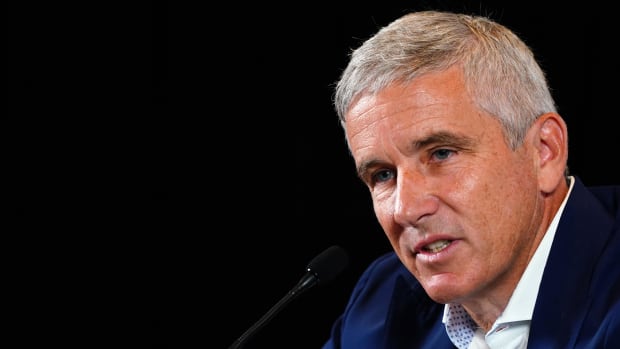
June 14: On the Tuesday of the U.S. Open week, PGA Tour commissioner Jay Monahan announces through the Tour a health-related leave of absence that will see Tour executives Ron Price and Tyler Dennis take over his duties.
July 7: In a memo to players, PGA Tour commissioner Jay Monahan says he will return from his leave on July 14, which is the Monday of British Open week.
July 9: Randall Stephenson, a longtime member of the PGA Tour and former head of AT&T, sends a resignation letter to Monahan and the board and specifically cites his displeasure with the framework agreement.
July 11: Among wish-list ideas proposed by the LIV Golf League in the time leading up to the framework agreement was giving Tiger Woods and Rory McIlroy LIV Golf League franchises and seeing them compete in LIV Golf events. It was just one of the ideas that discussed by the parties as part of documents released by a Senate subcommittee during a hearing in Washington, D.C., led by Sen. Richard Blumenthal (D-Conn.). The PGA Tour rejected it as part of the negotiation.
The committee is concerned about the foreign involvement in an American sports league as well as possible antitrust violations. Some of the ideas include having a "World Golf Series" team event that would be played in Saudi Arabia; LIV operating as it is but being played in the fall or with the idea of LIV coexisting along with the PGA Tour; two of the PGA Tour’s designated events that would be branded by the PIF or the Saudi Arabia oil company, Aramco.
July 18: Masters champion Jon Rahm says he has no trust issues with PGA Tour commissioner Jay Monahan—unlike several of his peers—and suggests time is needed. “As it comes to what he's been doing for us and the PGA Tour, I think he's done a fantastic job. I would say it was unexpected what happened. I think what the management of the PGA Tour, the turn they took without us knowing was very unexpected, but I still think he's been doing a great job. And right now after that happened, I only think it's fair to give them the right time to work things out. I still think they have the best interest of the players at heart."
Rahm, speaking before the British Open, also reiterates he is not interested in LIV Golf. “We all had the chance to go to LIV and take the money and we chose to stay at the PGA Tour for whatever reason we chose. As I've said before, I already make an amazing living doing what I do. I'm extremely thankful, and that all happened because of the platform the PGA Tour provided me. As far as I'm concerned they've done enough for me, and their focus should be on improving the PGA Tour and the game of golf for the future generations."
Aug. 1: Tiger Woods is named to the PGA Tour Policy Board, giving the players a power boost as he becomes the sixth player director on the board. Part of the move includes a stipulation that will see a change in PGA Tour governance that means the player directors will have final say in any decisions going forward.
Aug. 8: PGA Tour commissioner Jay Monahan speaks with reporters for the first time since his leave and after returning to work and takes responsibility for the way the negotiations for the “framework agreement" were secretly handled and the subsequent rollout. “It was ineffective and as a result there was a lot of misinformation. And anytime you have misinformation that can lead to mistrust. And that’s my responsibility. That’s me and me alone. I take full accountability for that. I apologize for putting players on their back foot. But ultimately it was the right move for the PGA Tour. I firmly believe that as we go forward time will bear that out. It was the right move and obviously we’re now in a position with NewCo (PGA Tour Enterprises) that provides the opportunity to have productive conversations."
Oct. 19: On the eve of LIV Golf’s final event of 2023, CEO and commissioner Greg Norman speaks with reporters publicly for the first time since the agreement was announced and says he has "zero" concern about the future of the league, regardless of what happens with the “framework agreement."
“All indications are showing that the position of LIV has never been stronger and that the success of our players and our brand has never been in a better place. And as we look forward into 2024, we’ve got a full schedule. We’ve got some places we’ve been to before, but we’ve got some new venues as well and we’re reaching different regions."
Nov. 28: Tiger Woods speaks publicly for the first time since the framework agreement was announced and he joined the Policy Board, touching a variety of subjects including outside Public Equity Investment in the PGA Tour, the Public Investment Fund and LIV Golf. He calls the ongoing negotiations "murky" and says "I would have to say there's a lot of moving parts on how we're going to play. Whether it's here on the PGA Tour or it's merging, or team golf. There's a lot of different aspects that are being thrown out there all at once and we are trying to figure all that out and what is the best solution for all parties and best solution for all the players that are involved.’’
He says during the week and again two weeks later at the PNC Championship that he is focused on a deal getting done or some resolution by the Dec. 31 deadline.
Dec. 7: After weeks of speculation, Jon Rahm is announced as the newest member of LIV Golf. The two-time major champion, who on numerous occasions had expressed his disinterest in LIV due to the format, among other things, makes it official in New York where he said the lucrative offer was difficult to ignore and he had come to terms with the format. He also said his decision had nothing to do with any animosity or issues wit the PGA Tour.
I am proud to join @livgolf_league and be part of something new that is bringing growth to the sport. I have no doubt that this is a great opportunity for me and my family and am very excited for the future. pic.twitter.com/myf4isJgJ3
— Jon Rahm Rodriguez (@JonRahmOfficial) December 7, 2023
“I’m forever grateful to the PGA Tour and the platform they allowed me to be on. I have nothing bad to say about them. They allowed me the opportunity to play in some great events and allowed me to make a mark."
Dec. 31: The agreement deadline comes and goes but the PGA Tour says there is "meaningful progress" and that negotiations will continue into 2024.
Jan. 31: The PGA Tour announces the formation of PGA Tour Enterprises in a partnership with Strategic Sports Group, a group of investors from a number of professional sports. The deal, worth $3 billion, is said to allow nearly 200 PGA Tour players access to $1.5 billion in equity over time. The deal states that it allows for co-investment from the PIF in the future.
March 12: Speaking with reporters for the first time since August, PGA Tour commissioner Jay Monahan said negotiations with the PIF are “accelerating” and that he and PGA Tour Policy Board members met with Yasir Al-Rumayyan in January, but did not offer specifics.
May 9: Rory McIlroy reveals that he is part of a subcommittee including Tiger Woods and commissioner Jay Monahan that is tasked with working directly on a deal with the PIF. The seven-man committee also includes Adam Scott, player liaison Joe Ogilvie, Joe Gorder, a board member from Valero Energy, and John Henry from Strategic Sports Group.
May 13: Jimmy Dunne, one of the architects of the June 6, 2023, agreement, resigns from the PGA Tour Policy Board. In a letter to the board, he wrote that “no meaningful progress has been made towards a transaction with PIF,” and that ever since players seized control of the board and cut him out of negotiations, “my vote and my role is utterly superfluous.”
